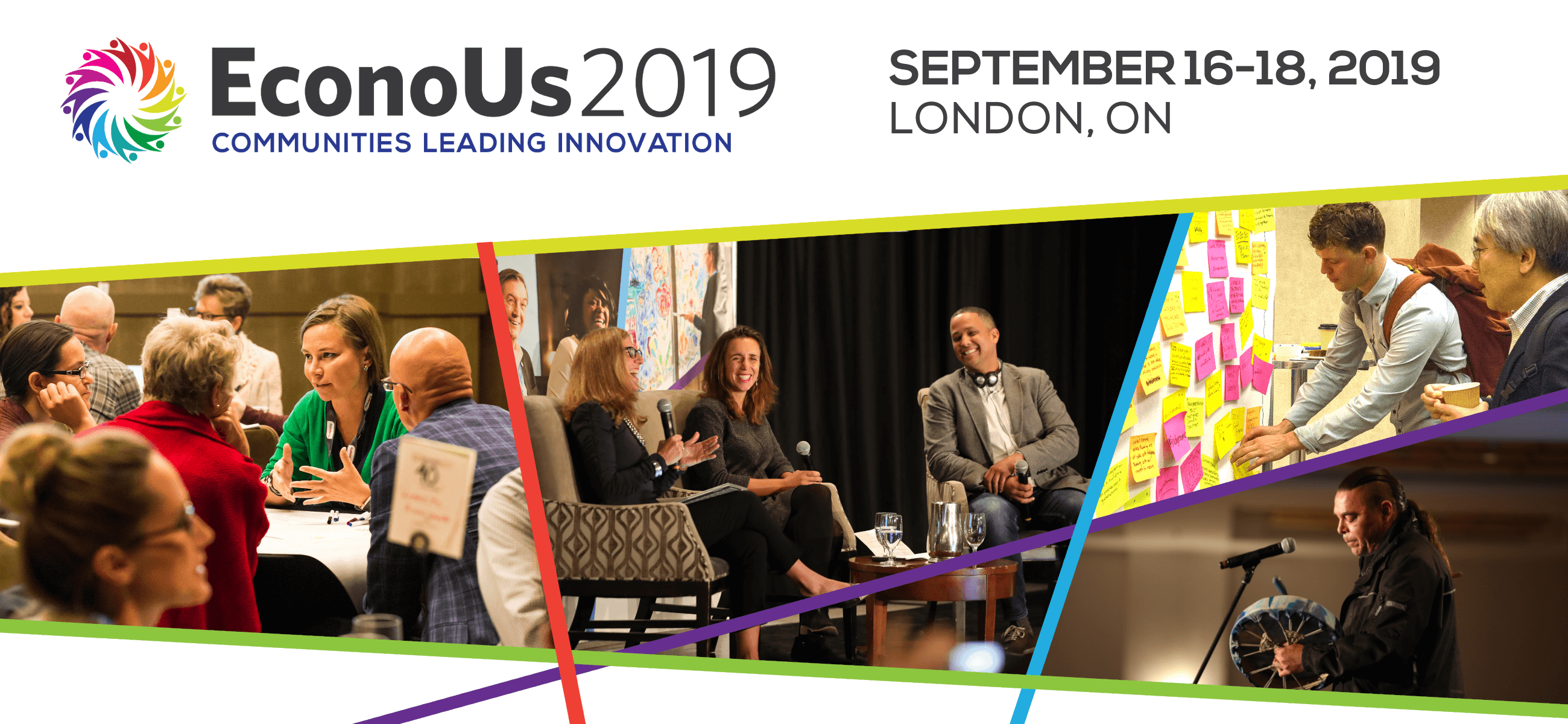 In May 2018, the Senate Standing Committee on Social Affairs, Science and Technology issued a report entitled The Federal Role in a Social Finance Fund. The Committee’s recommendations included the federal government creating and contributing to a national social finance fund. This recommendation, among others from the Committee, aligns with, for example, the social enterprise strategy of the Ontario government.
In May 2018, the Senate Standing Committee on Social Affairs, Science and Technology issued a report entitled The Federal Role in a Social Finance Fund. The Committee’s recommendations included the federal government creating and contributing to a national social finance fund. This recommendation, among others from the Committee, aligns with, for example, the social enterprise strategy of the Ontario government.
For all of the optimism percolating through the Senate report and Ontario’s strategy there is the challenge of how to reconcile two dynamics that historically have been opposed: the private interest for profit and the common interest for public benefit. Social finance is about harnessing capital and the forces of the market to solve social problems. It’s about commercializing social, environmental and cultural problems that traditionally were addressed by government as part of an overall goal of wealth redistribution and creation and protection of public goods. Social finance represents a shift: addressing these problems is an opportunity for wealth creation, as well as doing good.
The challenge arises because social finance operates at the cross‑roads of business and philanthropy. The promise of social finance is that the market and capital will, necessarily, result in social benefit; the expectation of social finance, though, is to generate profit for those who invest in the activities undertaken to solve social problems.
How can regulation help to distinguish truly socially or environmentally driven businesses from their conventional profit-oriented counterparts, in order to tame the tendency for profit-seeking to overwhelm social benefit? Two areas of law come to mind: securities regulation and corporate legislation.
In June 2013 the Ontario Securities Commission approved the establishment of a social stock exchange (SSE) called Social Venture Connexion (SVX). In addition to Ontario’s SVX, SSEs of various stripes have been established in the United Kingdom (Social Stock Exchange), in Singapore (Impact Investment Exchange), South Africa (South African Social Investment Exchange). SVX presents itself as a “one-stop-shop for impact investing” — an online platform that provides social enterprises with access to interested impact investors.
SVX’s ability to regulate is strictly private, governed by the contract that it enters into with social enterprises listed with it, as well as the contract with investors who are permitted to invest through it. To be listed (and maintain its listing) on SVX, a social enterprise must satisfy a number of requirements. These include achieving a satisfactory company rating through the Global Impact Investment Rating System (GIIRS), providing SVX with an annual update of its GIIRS rating and, in terms of governance, evidence of “relevant expertise” among management and the directors of the social enterprise. Presumably, though not entirely clear from the language of the contract, “relevant expertise” refers to areas related to social and/or environmental impact. SVX’s enforcement mechanism is to suspend the listing of a social enterprise, including obtaining a court injunction against such an enterprise prohibiting it from engaging in activities in breach of the contract or requiring it to comply with the contract.
In terms of legislative regulation, two provinces in Canada have enacted legislation aimed at corporate social enterprises — British Columbia and Nova Scotia. The B.C. legislation is part of the Business Corporations Act and came into effect on July 29, 2013; the Nova Scotia legislation came into effect on June 15, 2016.
Each province’s legislation aims to create a hybrid corporation that combines characteristics of a for-profit business with a social mission. These hybrid corporations, called “community contribution companies” in B.C. and “community interest companies” (CICs) in Nova Scotia, have some or all of the following features. They:
- engage in activities with a profit purpose,
- are established with share capital,
- must have a community purpose (that is, for the benefit of society at large or for a segment of society),
- are restricted as to the amount of dividends they may declare annually and the amount of interest they may pay on the debt they issue,
- must have at least three directors,
- are prohibited from transferring their assets for less than fair market value unless the transferee is a qualified entity (e.g., non‑profit, registered charity),
- on dissolution, may only distribute their assets to one or more qualified entities established for a similar community purpose,
- must provide their shareholders with a report (approved by their directors) about their most recent fiscal year and the manner in which their activities benefited society or advanced their community purpose (and, under the B.C. legislation, the annual community purpose report must be posted to the corporation’s website).
A significant difference between the Nova Scotia and B.C. regimes is in their regulatory oversight. Nova Scotia has a Registrar overseeing CICs, who has the power to determine whether or not a corporation qualifies to be designated as a CIC, and can withdraw the designation from any corporation that ceases to meet the qualifications.
The issue of how to guard against mission drift among social enterprises, if the promise of social and environmental impact is to become a reality, is critical. These are still early days in the evolution of social finance and social enterprises. The expectations for financial and social/environmental return that impact investors and social enterprises have are not homogeneous. If the market for social/environmental return is to realize its promise, there must be criteria to distinguish it from the conventional market driven exclusively by profit. This is of particular concern when businesses are seeking to profit from social and environmental problems. To that end, regulatory regimes have a role, whether private and voluntary, such as SVX, or state sanctioned, such as the corporate legislative reforms that Nova Scotia and B.C. have enacted.
Photo: Dusty Hoskovec/Northern Spark/Flickr
 Edward Hyland is partner at Iler Campbell LLP, Toronto, Ontario. Iler Campbell LLP is a full service law firm serving co-opertives, not-for-profits, charities and socially-minded small businesses and individuals in Ontario.
Edward Hyland is partner at Iler Campbell LLP, Toronto, Ontario. Iler Campbell LLP is a full service law firm serving co-opertives, not-for-profits, charities and socially-minded small businesses and individuals in Ontario.
Pro Bono provides legal information designed to educate and entertain readers. But legal information is not the same as legal advice — the application of law to an individual’s specific circumstances. While efforts are made to ensure the legal information provided through these columns is useful, we strongly recommend you consult a lawyer for assistance with your particular situation to obtain accurate advice.
SOURCE: Published via Rabble.ca on June 28, 2018
*The opinions expressed in blog posts are those of the author(s) and do not necessarily reflect the position of CCEDNet



 and promote sustainability in the non-profit sector, in order to guide future spending. It will likely lead to changes in the sector for years to come. The province’s purported goal is to strengthen the non-profit sector through greater sustainability, positive outcomes, and increased philanthropy & charitable giving.
and promote sustainability in the non-profit sector, in order to guide future spending. It will likely lead to changes in the sector for years to come. The province’s purported goal is to strengthen the non-profit sector through greater sustainability, positive outcomes, and increased philanthropy & charitable giving. In May 2018, the Senate Standing Committee on Social Affairs, Science and Technology issued a report entitled The Federal Role in a Social Finance Fund. The Committee’s recommendations included the federal government creating and contributing to a national social finance fund. This recommendation, among others from the Committee, aligns with, for example,
In May 2018, the Senate Standing Committee on Social Affairs, Science and Technology issued a report entitled The Federal Role in a Social Finance Fund. The Committee’s recommendations included the federal government creating and contributing to a national social finance fund. This recommendation, among others from the Committee, aligns with, for example,  Edward Hyland is partner at Iler Campbell LLP, Toronto, Ontario. Iler Campbell LLP is a full service law firm serving co-opertives, not-for-profits, charities and socially-minded small businesses and individuals in Ontario.
Edward Hyland is partner at Iler Campbell LLP, Toronto, Ontario. Iler Campbell LLP is a full service law firm serving co-opertives, not-for-profits, charities and socially-minded small businesses and individuals in Ontario.





 A CCEDNet Analysis of Manitoba’s New Building Sustainable Communities Program
A CCEDNet Analysis of Manitoba’s New Building Sustainable Communities Program

 The Sustainable Development Goals Unit at Employment and Social Development Canada, is pleased to share their online consultation platform to support the development of Canada’s 2030 Agenda National Strategy.
The Sustainable Development Goals Unit at Employment and Social Development Canada, is pleased to share their online consultation platform to support the development of Canada’s 2030 Agenda National Strategy.
 The Canadian Journal of Nonprofit and Social Economy Research / Revue canadienne de recherche sur les OSBL et l’économie sociale (ANSERJ) welcomes submissions of scholarly research related to the nonprofit sector and the social economy. They welcome submissions from students, faculty members, administrators, practitioners, researchers, employers, and policymakers. Submissions can be in French or English.
The Canadian Journal of Nonprofit and Social Economy Research / Revue canadienne de recherche sur les OSBL et l’économie sociale (ANSERJ) welcomes submissions of scholarly research related to the nonprofit sector and the social economy. They welcome submissions from students, faculty members, administrators, practitioners, researchers, employers, and policymakers. Submissions can be in French or English.

 The Government of Canada will soon be launching a program to help social purpose organizations improve their ability to participate in the social finance market.
The Government of Canada will soon be launching a program to help social purpose organizations improve their ability to participate in the social finance market.